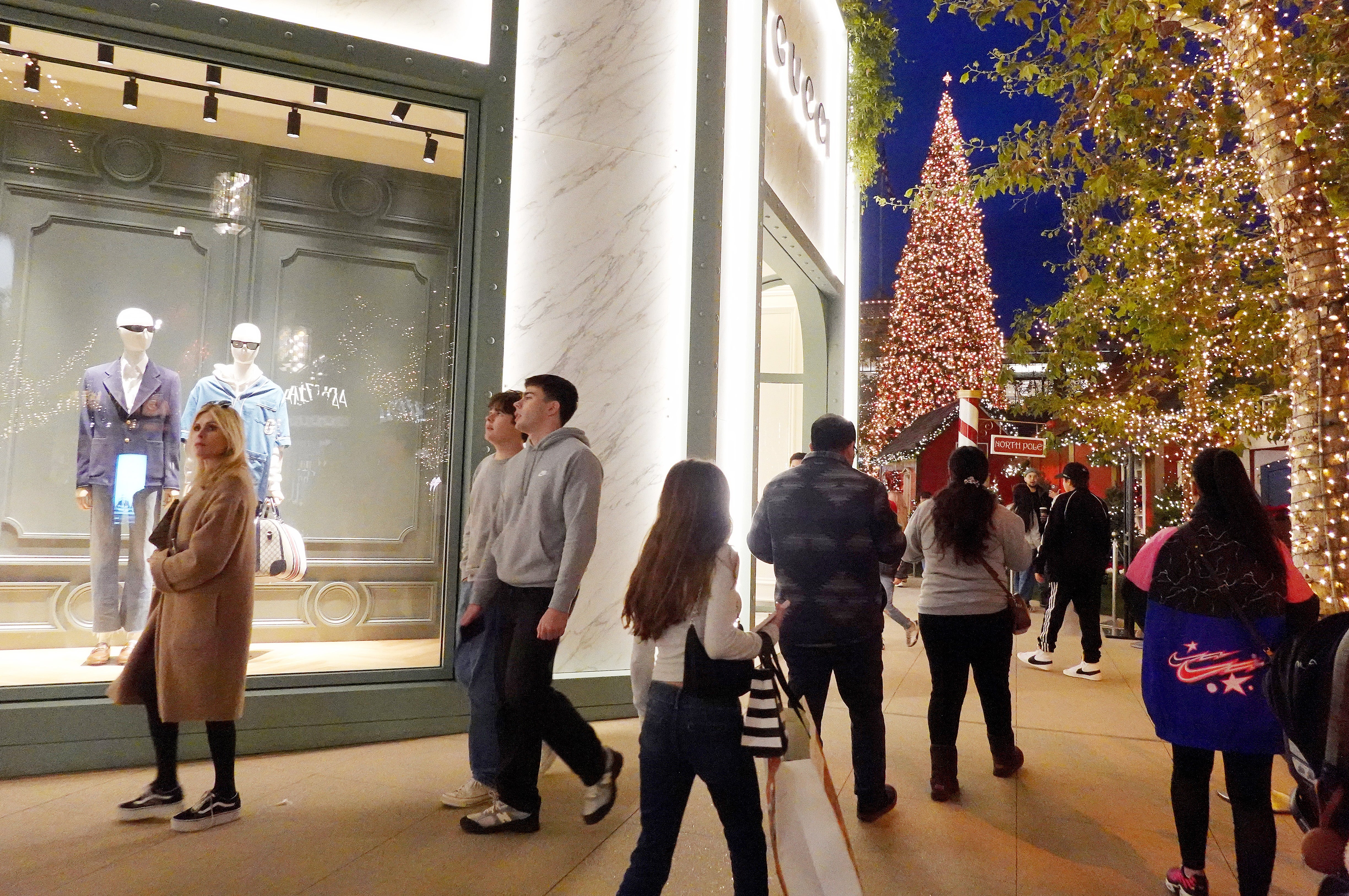Some holiday shoppers hungry for a deal are hitting pause on purchases as retailers start to scale back their more lenient return policies.
Many retailers made it easier to shop online during the COVID-19 pandemic by offering free shipping and returns. But in the years since, these perks have started to dry up, much to the ire of holiday shoppers looking to snag a Black Friday or Cyber Monday lightning deal — even on an item they are iffy about.
The return of return fees, restocking fees and no free shipping on returns has the potential to dampen the holiday spirit for some. Eighty-two percent of shoppers say free returns are important when they are deciding whether to make an online purchase, according to an October report by the National Retail Federation and Happy Returns, a logistics company owned by UPS.
An estimated 17 percent of holiday sales will be returned in 2025, with 82 percent of shoppers returning unwanted gifts within a month of receipt. According to the National Retail Federation, overall returns in 2025 will cost U.S. retailers nearly $850 billion.
John Rosen, an economics professor at the University of New Haven, told The Independent that given the tremendous value of returns heading back to retailers, it makes sense that some businesses are trying to recoup those costs.
“It’s a huge problem for retailers to deal with,” Rosen said. “So to deal with that exploding cost, yes, many are trying to restrict returns.”
“That takes a fairly obvious form, such as charging a return fee, like $1 or $2, just to do a return,” Rosen added, noting retailers are more likely now to give customers a store credit than cash back to keep the revenue returning.
Currently, 72 percent of U.S. retailers charge a fee for at least one return option, up from 66 percent last year, according to the report.
In recent years, many popular retailers have returned to the practice. Customers who aren’t rewards members at Macy’s pay $9.99 to ship back returns, whereas clothing stores like Zara and H&M have small fees under $6 to ship an item back. Even retail giant Amazon sometimes charges to ship back unwanted items.
While waiving these fees boosted sales during the COVID-19 pandemic, when people weren’t as likely to visit brick-and-mortar stores, online shopping has stuck around, creating a culture of returning.
Now, retailers are met with the challenge of striking a balance between meeting customers’ expectations of easy returns and keeping their profits up.
“If you’re a retailer and you offer unlimited returns, I don’t know how you move away from unlimited returns, because it’s a competitive weapon for everybody,” Rosen said.
However, some retailers are putting restrictions on their return policies in order to make up for higher costs elsewhere, according to the National Retail Federation.
Retailers that responded to the group’s survey said the top reasons they charge for returns are to make up for more expensive shipping costs, economic uncertainty and the risk of tariffs.

Of the merchants surveyed, some also expressed concern about an increase in retail fraud.
When shoppers were mostly returning merchandise to brick-and-mortar stores, the retailer would examine the product and accept it if it was in good condition. However, online returns have made the process more complex due to products getting stuck in transit, getting shipped out of their original packaging or getting sent back damaged.
Some of the fraudulent returns include items consumers wore before sending back – known as “wardrobing.” While other customers falsely claim they never received an item.
The massive amount of returns coming back to retailers – especially during the holiday season – can also drain resources because they require reverse logistics, including shipping, inspecting, restocking and repackaging of returned items.
While third-party logistics companies have eased some of those troubles for businesses, according to Rosen, many of the products returned then have to be resold at marked-down rates.
“People have a problem. They don't want to deal with it, so other guys, entrepreneurs, hook up an entire industry to at least take the hassle,” Rosen said of the third-party logistic companies, like Happy Returns.
Solving that problem is also one of the reasons retail giant Amazon acquired Whole Foods several years ago, Rosen said.

“It gives them a bunch of locations that they can tell you to physically go to to return your item,” Rosen said.
For 2025, online retail spending in the U.S. is expected to reach $1.47 trillion, according to CapitalOne Shopping Research, which notes that Americans are most likely to shop during the holiday months.
While many stores have cut back on free returns, plenty have extended the window on returns for the holiday season to the end of January.
Amazon, Kohl's and Walmart will accept returns for purchases made from November 1 through December 31 until January 31, 2026. Meanwhile, other retailers like Best Buy and Macy’s offer returns for holiday gifts through the end of December.
The changes in return policies come as two out of five Americans plan to spend less this holiday season amid economic uncertainty.
Roughly two in five U.S. consumers (42 percent) say they intend to spend less this holiday season compared with 2024, according to a 2025 Economic Impact Survey by insurance company Nationwide.

Even with easing inflation, the high cost of essentials like groceries, utilities, and rent is leaving many to prioritize bills over things like gifts.
Tariffs could cost consumers $28.6 billion this holiday season, or about $132 per shopper, according to LendingTree, an online comparison marketplace.
Electronics would be hit the hardest, at $186 per shopper, followed by clothing/accessories ($82), while food and candy would see the smallest impact ($12).
Among those intending to cut back, nearly half (49 percent) expect to buy fewer gifts; 38 percent will opt for less expensive gifts; and 20 percent say they won’t buy any gifts, according to Nationwide.
5 subtle and showy options for your festive manicure
Black Friday: What time do stores open across the US?
Dolly Parton shares heartfelt Thanksgiving message to her fans after health issues
Armani Group appoints new board after the death of influential founder
The holiday herb that can ease bloating and soothe muscles
Do women really need to pretend they are men on LinkedIn to get seen?







